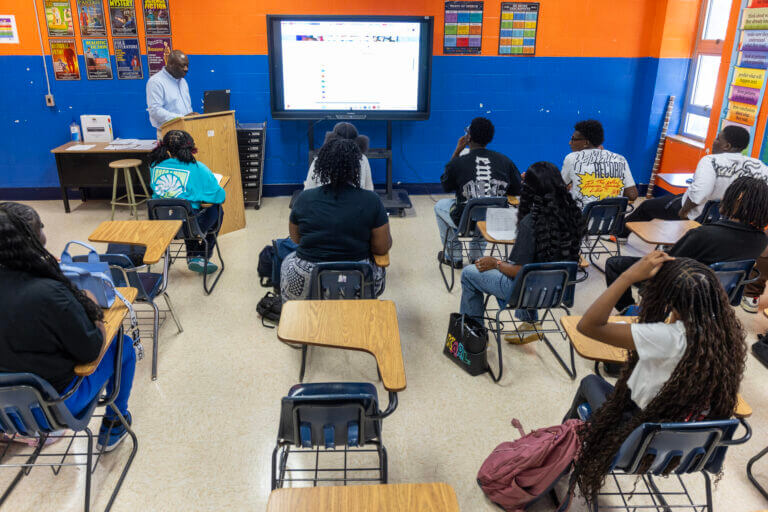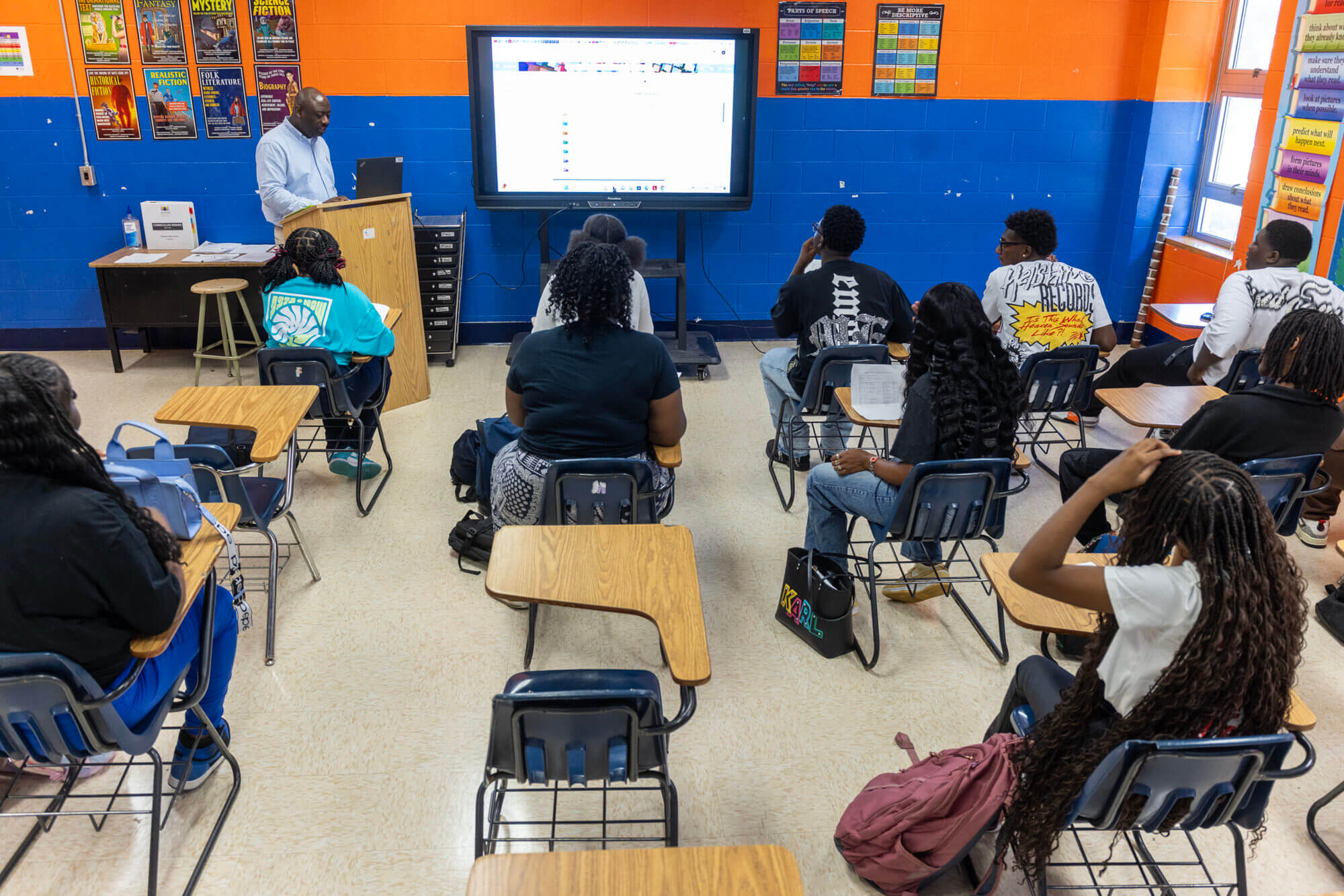

The percentage of Mississippi students making high scores on state tests declined in all four content areas, the latest results reveal.
It’s the first time those numbers have seen a meaningful drop in years, aside from the onset of the COVID-19 pandemic.
Paula Vanderford, chief accountability officer for the state education department, conceded the downturn was “unusual for Mississippi” at Thursday’s state board of education meeting.
“With the exception of COVID, we’ve seen steady increases in our overall proficiency,” she said. “So the results this year have given us the need to take a deeper dive into what the results really mean.”
All four end-of-course assessments — Algebra I, English II, U.S. history and biology — saw similar or slightly higher pass rates compared to last year.
Results were less straightforward for the four subject areas overall. Passing scores went up slightly overall for English-Language Arts and U.S. history, and they fell slightly for mathematics and science.
However, the percentage of students scoring proficient and advanced during the 2024-2025 school year across the four subject areas fell a couple of points across the board.
The smallest decline was in English — students fell just a fraction, from 47.8% last year to 47.4% — while the largest drop was in science, going from 63.4% to 60.9%.
“The data is not a warning yet,” said board chair Matt Miller. “It’s a reminder. If it happens next year, we’re sliding into a warning situation.”
READ MORE: See the test results for Mississippi here.
Vanderford also cautioned board members from becoming too concerned just yet.
She encouraged them to wait to see the results of the National Assessment of Education Progress tests, which reveals how Mississippi ranks against other states, and compare those results to these statewide assessments, the Mississippi Academic Assessment Program.
Results from the third-grade literacy test were a little more promising. Those scores went up marginally, from a 75.7% pass rate to 77.3%.
The Literacy-Based Promotion Act, passed by the state Legislature in 2013, made passing the test a requirement to graduate to the fourth grade. The act has led to higher standards in literacy education in Mississippi, which experts say has largely contributed to the state’s big reading gains, coined “The Mississippi Miracle” by national media.
Still, Miller acknowledged that the state department of education could be in a precarious situation if it loses momentum.
“The Mississippi Miracle, that’s now in the past,” he said at the meeting. “It’s now the marathon. What can we do to move it to the next level? We can’t rest.”
Board members and top education officials stressed that the agency must turn its focus to pushing students to perform at a “proficient” level on the assessments, instead of just “passing.”
The state’s new accountability model, which is still being finalized, puts a “greater emphasis on proficiency,” State Superintendent Lance Evans said in a statement. MAAP results are a big part of the state’s accountability grades, which will be released at next month’s board meeting.
In order to improve scores moving forward, the agency is implementing a number of initiatives. These include increasing the number of literacy and math coaches at schools across the state, encouraging districts to use “high-quality instructional materials,” ensuring administrators know how important it is to implement curriculum based on science of reading research and training teachers in the science of reading.
Additionally, the agency will be seeking funds from the Legislature this session for literacy and math initiatives, which Evans has already discussed with House Speaker Jason White.
But none of these programs will make a difference if districts don’t accept the support offered by the state education department, Evans said at the meeting.
“There are some districts that refused literacy coaches last year and some of them fell tremendously,” he said. “I called them and asked, ‘Are you sure this is what you want to do?’ And they said, ‘Yes.’ You see what happened.”
Several public school districts were recognized for their high scores in three to four subject areas, including Long Beach, Ocean Springs, Clinton, Enterprise, Oxford, Pass Christian and Union County.